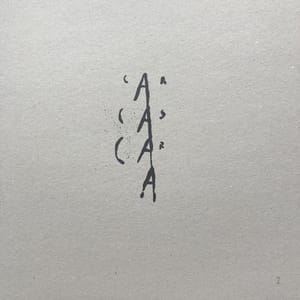Carcáscara Fiona (2022)
Music, not just modern music, is peppered with songs named after women. One of Beethoven’s most famous works is commonly known as “Für Elise”, a misnomer due to a misspelling as the song was actually dedicated to Therese. But that’s not the point.
Muses as we know them have always been women, dating back to the Greek goddesses of the arts and sciences. As our society continues to undo tropes around gender, the conversation has shifted to masculinity and femininity as expressions rather than normative, prescribed ways of being.
In the African creation story, the first being to emerge, representing masculine energy was uMvelinqangi, and he created everything. His feminine counterpart, uNomkhubelwane, did not create anything, but she brought abundance. Essentially she came with the good vibes. And that’s exactly what “the girlies” are bringing, the vibes. There’s a famous Kendrick Lamar line where he states, “the women be the tastemakers for the shit we’re making.” And maybe that’s because the arts remain a space that needs softness and receptivity, the inimitable energy ascribed to the feminine entities who engender inspiration and creativity.
The name Fiona has Gaelic origins and is sung in Carcáscara’s song of the same name as the music unfolds by way of silken strings and choral expressions. The Basque textures and beautiful command of the acoustic guitar evoke emotions that can clearly only be described with this name, something so specific yet still resonant, and now through song, something that can live forever.

Start the conversation
Become a paid member of The Rest to gain access to the comments section.